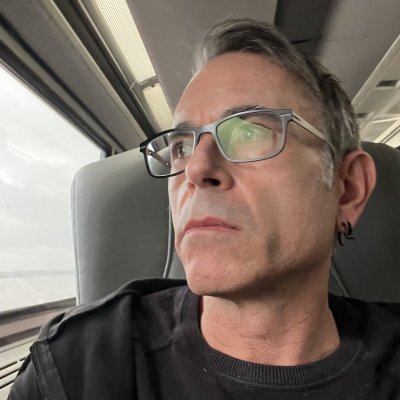
PhD, Temple University
MA, Temple University
BA, Amherst College
About
Eric Keenaghan focuses his research and teaching on modernist and cold war American poetries, particularly in work by LGBTQ+-identified writers. His scholarship also addresses the teaching of poetry; queer translation studies; anarchist, antifascist, and other resistant traditions in American literature; and 20th- and 21st-century women's experimental poetry and fiction.
He is the author of Queering Cold War Poetry: Ethics of Vulnerability in Cuba and the United States (Ohio State University Press, 2009) and coeditor of The Muriel Rukeyser Era: Selected Prose (Cornell University Press, 2023).
His essays have appeared in many edited volumes, including, most recently, Thinking with the Poem: Essays on the Poetry and Poetics of Rachel Blau DuPlessis (University of New Mexico Press, 2024) and Contemporary Queer Modernism (Routledge, 2025).
His articles have appeared in PMLA, Modernism/modernity, Textual Practice, Journal of Narrative Theory, Journal of Modern Literature, Translation Studies, and elsewhere. He is an advisory editor for the Journal of Modern Literature, and he currently serves as the advisory editor for twentieth-century poetry at PMLA.
New, in-progress book projects include a critical recovery of Muriel Rukeyser’s The Middle of the Air (1942-1951), a major unpublished work that imagines a fascist coup occurring in the United States; a study of Muriel Rukeyser’s antifascism and queer feminism; and a monograph about anarchist pacifism and twentieth-century American poetry.
In-progress and forthcoming essays include explorations of the poets’ theater of Frank O’Hara; how concerns about free speech and sexual liberation affected Allen Ginsberg’s support of the Cuban Revolution; cold war American literature’s lessons about the limits of LGBTQ+ identity politics and the possibilities of queer positionality; and how we might teach queer poetics differently by considering the nature of William Carlos Williams’s influence on LGBTQ+ poets before Stonewall.
Professor Keenaghan teaches graduate and undergraduate courses about modernist poetry, cold war and contemporary poetry, LGBTQ+ literature and history, leftist literature and new social movements, queer and gender studies, and literary and political theory.
Author website: Opening the Field
Social Media
- Instagram: erickeenaghan
- Threads: erickeenaghan
- Bluesky: @openingfield.bsky.social
Research
Publications
For a full list of publications, see curriculum vita (linked above) or author website.
Books
The Muriel Rukeyser Era: Selected Prose by Muriel Rukeyser (Cornell University Press, 2023; coedited with Rowena Kennedy-Epstein). Co-winner of the biennial Modern Language Association Prize for Bibliographical or Archival Scholarship.
Queering Cold War Poetry: Ethics of Vulnerability in Cuba and the United States (Ohio State University Press, 2009)
Essays
“Out of Alignment: Queer Modernism’s Anarchist Legacy” (from Contemporary Queer Modernism, Routledge).
“Total Imaginative Response: Five Undergraduate Studies from ‘The Lives of Muriel Rukeyser’” (Muriel Rukeyser: A Living Archive)
"Openings: Some Notes on the Political in 'Drafts'" (Jacket2)
Poems
“Primitive Biographies” (The Poetry Project)
from Love Letters to My Husband (Barzakh)
Instruction & Advising
Courses
Select Courses
Graduate:
- Queer Life-Writing
- Liberation’s Love Language: LGBTQ+ American Poetry and Activism
- Muriel Rukeyser and Political Radicalism
- Personal Politics and Impersonal Poetics
- The William Carlos Williams Era
- Modernist American Poetry
Undergraduate:
- Modernist American Poetry, 1900-1950
- Studies in an Author: James Baldwin
- Introduction to LGBTQ+ American Literature (Honors College)
- Cold War Poetry: The Beats and the Black Mountain School
- Creating Publics [on US public intellectuals] (English Honors)
Additional Information
In the News
The Muriel Rukeyser Era: A Discussion, with Rowena Kennedy-Epstein (The Flow Chart Foundation with Jeffrey Lependorf)
On The Muriel Rukeyser Era, with Rowena Kennedy-Epstein (1869, The Cornell University Press Podcast with Jonathan L. Hall)
“How to Be Antifascist: Muriel Rukeyser and The Life of Poetry” (Interchange with Doug Storm, WFHB)
On Ralph Waldo Emerson and commonality (Against the Grain with C.S. Soong, KPFA and WBAI)


